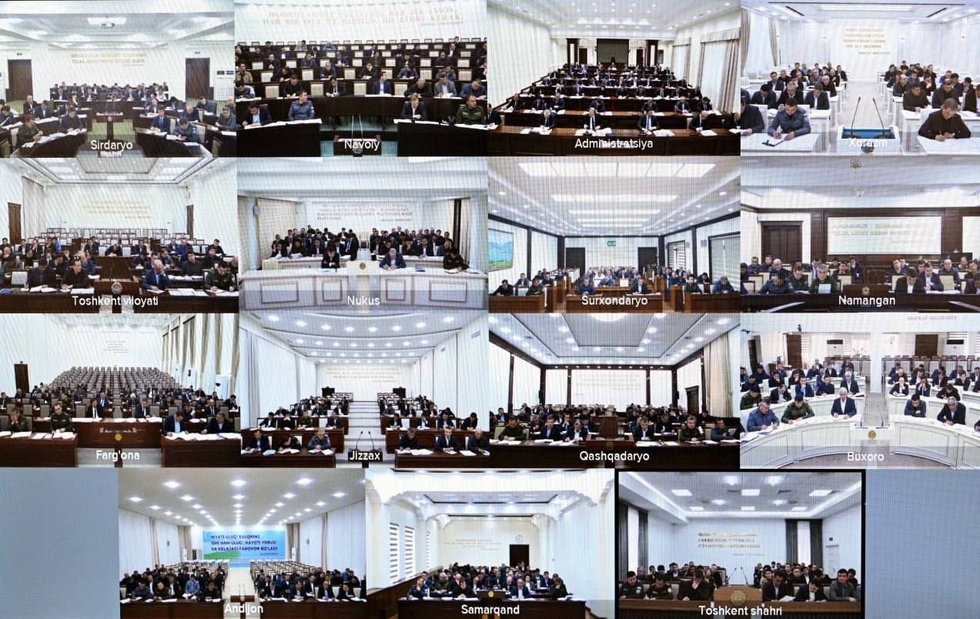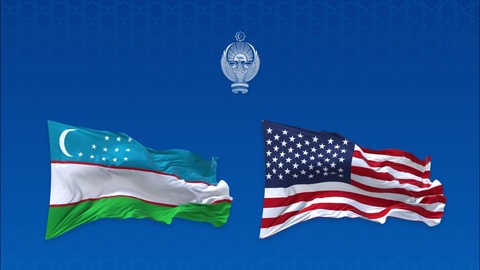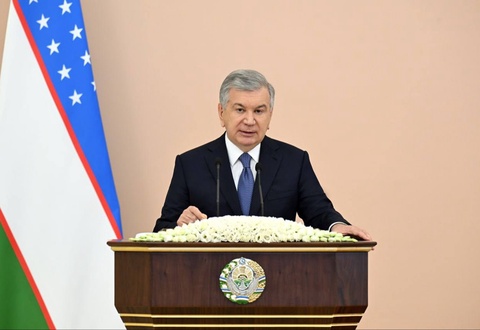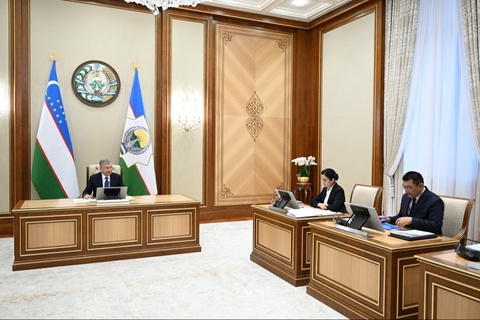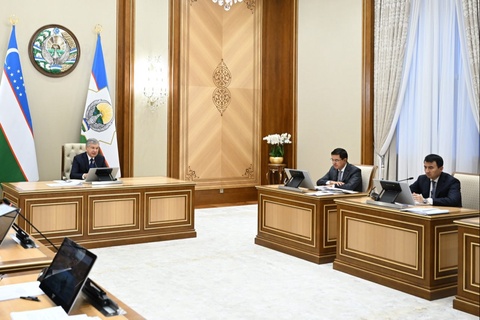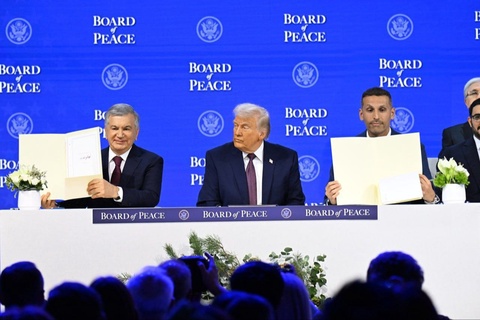In recent years, extensive work has been carried out under the privatization program to promote entrepreneurship and ensure the efficient use of buildings and facilities. Between 2021 and 2024, state assets valued at 47 trillion UZS were privatized, representing a thirty-fold increase compared to the previous decade.
As a result, the number of enterprises with state participation has halved, and the state’s share in the economy has decreased by 13 percent. The efficiency of privatized assets has also significantly improved.
While privatization was previously primarily focused on smaller enterprises and assets, recent years have seen larger-scale assets put up for sale. Notably, companies such as Ferganaazot, the Kungrad Soda Plant, Foton, Temiryo’l-konteyner, as well as prominent hotels like International and Lotte, have been privatized.
Last November, Uzbekistan conducted its first-ever “People’s IPO”, selling over 3 million shares of the Commodity Exchange to the public. As a result, 11,000 citizens became shareholders.
However, shortcomings persist in this area. Untapped opportunities remain in various regions and sectors, and there are delays in the process of bringing ready-to-sell assets to auction.
For instance, a 1,500-hectare plot was put up for sale without a thorough analysis of infrastructure capabilities and has remained unsold for over a year. Additionally, approvals for 4,000 plots are being delayed. In 2023, ministries and hokimiyats did not transfer 243 properties slated for sale to the State Asset Management Agency.
There has also been limited progress among large state-owned enterprises. Twenty-two companies, including Uzavtosanoat, Uzkimyosanoat, Uzmetkombinat, and Uzbekneftegaz, have yet to adopt International Financial Reporting Standards. Furthermore, companies such as O’zbekiston Pochtasi, Uzbekistan Airports, and Uzbekistan Railways have not obtained credit ratings.
At the meeting, emphasis was placed on addressing these shortcomings and accelerating related efforts. Privatization targets for 2025 were specifically outlined, including:
– sale of state assets worth 30 trillion UZS, with at least 10 trillion UZS to be directed into the state budget;
– offering state shares in 116 enterprises and 581 real estate properties for sale;
– auctioning off 6,100 hectares of land, aiming to increase revenues up to 6 trillion UZS;
– offering no fewer than 300 deposits and plots of land to investors, expected to generate revenues of 500 billion UZS.
These measures will result in additional investments in the economy, create more significant opportunities for businesses, and generate thousands of new jobs.
It was determined that a range of incentives would be provided to achieve these goals.
In particular, entrepreneurs will be allowed to purchase properties they have rented for at least five years. Currently, there are 632 such properties, and their sale to tenants is expected to generate revenues of 2 trillion UZS.
Additionally, 131 unsold assets of Uzpakhtasanoat will be re-auctioned, with a reduction in the starting price of up to 50% and the option to pay in installments over a period of up to three years.
Currently, hokimiyats own at least 51 percent stakes in 537 markets and commercial complexes nationwide. The existing rule requiring mandatory hokimiyat participation in market ownership will be abolished, creating additional opportunities for entrepreneurs.
There will also be expanded opportunities for land sales: smaller plots that have remained unsold for a long time will be combined with adjacent properties and re-auctioned.
Positive examples of the efficient use of state assets have already increased revenues to local budgets. For instance, in Tashkent, municipal property has been inventoried, and an electronic database has been established. As a result, 102 inefficient buildings and 97 hectares of vacant land have already been auctioned. Last year, the privatization of 118 hectares of land plots, including buildings and facilities, generated 60 billion UZS – five times more than in 2022.
This experience will be implemented in regional centers this year and expanded to districts in the following year.
A key area remains the entry of state-owned enterprises onto international markets. This practice has proven effective and has gained recognition from international organizations.
Responsible officials have been tasked with continuing this process in collaboration with experts. This year, shares of 28 enterprises will be introduced to international markets, and shares of an additional 10 major enterprises will be publicly offered for sale next year.
The Prime Minister has been instructed to approve the corresponding roadmap and ensure monthly monitoring of its implementation.
Ministers, heads of sectors, and hokims presented reports on the issues discussed during the meeting.


